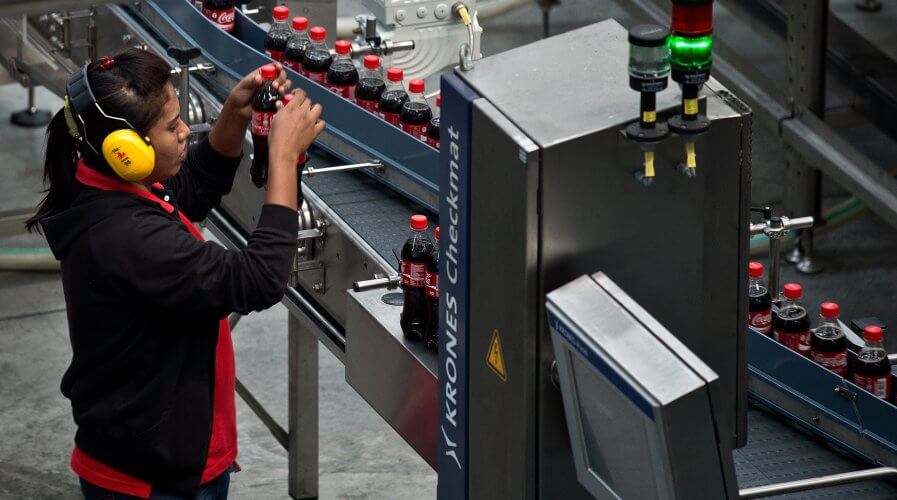
MDEC chairman wants SMEs to take an active role in nationwide digitalization efforts, dubbed ‘Malaysia 5.0’. Source: AFP
Malaysia 5.0? SMEs to play critical part in digital transformation
- The chairman of the Malaysia Digital Economic Corporation (MDEC) is encouraging SMEs to take an active role in nationwide digitalization efforts, dubbed ‘Malaysia 5.0’
The newly appointed chairman of the Malaysia Digital Economic Corporation (MDEC) has called for small-medium enterprises (SMEs) in the country to embrace digital processes and systems, as a means of accelerating their participation in the country’s digital economy, dubbed ‘Malaysia 5.0’.
In a public statement, new MDEC chairman, Dr Rais Hussin, has outlined Malaysia 5.0 as a “problem-solving approach to society’s challenges and problems” via the deployment and application of Industry 4.0 technologies, that are capable of integrating the physical and digital environments together.
The idea stems from Japan’s “Society 5.0”, which defines the concept as “a human-centered society that balances economic advancement with the resolution of social problems by a system that highly integrates cyberspace and physical space.”
Society 5.0 is described as the next evolutionary stage of human societal communities, that started with the hunting and gathering society (Society 1.0), followed by the agrarian or agricultural society (Society 2.0), the industrial society (Society 3.0), and lastly the information society (Society 4.0).
The new chairman of Malaysia’s digital development group would like to see Malaysia 5.0 become a philosophy that empowers Malaysians, and says that MDEC will utilize it as a guiding strategy to deliver digital-native solutions to benefit people across all socio-economic levels, and “especially small and medium enterprises (SMEs) hit by the Covid-19 crisis which now have to face the challenging economic environment ahead.
“Digital transformation from e-commerce solutions, training and education, and integration onto common platforms, will improve lifestyles and enable independence for those that implement them proactively,” Dr Hussin commented in his statement, when speaking about SMEs.
Data from the World Bank indicates that worldwide, SMEs account for around 90% of all businesses, and for over 50% of global employment opportunities. In emerging economies such as Malaysia’s, official economies can contribute up to 40% of the gross national income (GDP). The number shoots up significantly if taking into account informal SMEs as well.
Dr Hussin, who is also the president and CEO of independent, strategy-focused think tank EMIR Research, said that, “Malaysia 5.0, properly implemented, can directly address their inclusion, access, performance and growth through 4IR [4th Industrial Revolution] tools such as Fintech, Blockchain and AI [artificial intelligence]. Digitalization offers new opportunities for SMEs to participate in the global economy, innovate and grow.”
MDEC will help local SMEs get creative digital solutions up and running. “MDEC will play its part in this ecosystem by offering a ‘sandbox’ for SMEs to experiment with new technologies and stress test them before implementation so that the risk of failure is reduced. The result is greater sustainability for those SMEs that innovate.
“In this way, SMEs will play a critical role in strengthening productivity, delivering more inclusive growth, and adapting to the major transformations of our time.”
Jason Loh, the head of Social, Law and Human Rights at EMIR Research, believes Industry 4.0 tech will propel not just SMEs and “will not only transform the workplace and factory plants, but also our schools, universities, hospitals and homes and just about every aspect of our life in very advanced and sophisticated ways, as never before.”
Loh also pointed out that the Malaysian government has in place a national strategy to boost digitization of the economic sector, known as the Industry 4.0 Policy that is being spearheaded by the Ministry of International Trade & Industry (Miti), with a comprehensive digital transformation agenda for manufacturing and related services.
“Manufacturing and SMEs are being incentivized and encouraged to go digital which will see their operations and activities undergo a makeover by adoption of technologies and systems that blurs the boundary between the digital/virtual and physical,” he wrote.
“In fact, we are seeing additive manufacturing and 3-D printing, robotics, bots embedded in computer-numerical control (CNC) machines, nanotechnology and advanced simulation for precision tooling, already unleashed from their application to industries and businesses and “spilled over” into other sectors such as healthcare, agriculture, and education.”
READ MORE
- The criticality of endpoint management in cybersecurity and operations
- Ethical AI: The renewed importance of safeguarding data and customer privacy in Generative AI applications
- How Japan balances AI-driven opportunities with cybersecurity needs
- Deploying SASE: Benchmarking your approach
- Insurance everywhere all at once: the digital transformation of the APAC insurance industry


